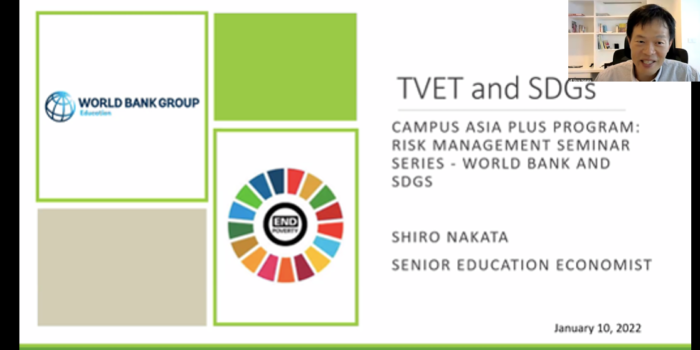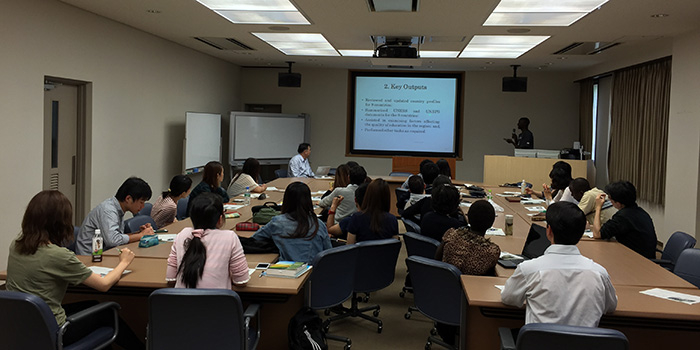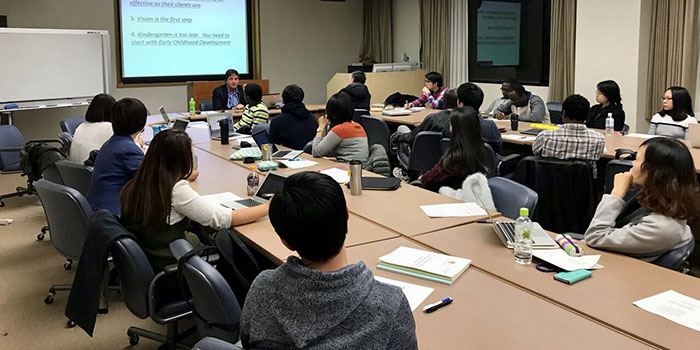As one of the “World Bank and the Sustainable Development Goals” (SDGs) series, on January 10th 2022, Dr. Shitro Nakata, senior education economist in WB, delivered a lecture about “Technical Vocational Education and Training (TVET) and Sustainable Development Goals (SDGs)”. The objectives of the lecture were to explore the latest challenges and key concepts in skills development/ TVET in relation to the SDGs and to review examples of World Bank programs in the sector.
Dr. Nakata started the lecture with the concept of “Skills”. He explained that “Skills” is a very broad concept, which includes cognitive skills, non-cognitive skills, socio-emotional skills learned in primary and lower secondary schools, and higher-order cognitive skills learned in upper secondary schools. Based on those skills, students can learn solid technical skills needed at the professional level in TVET. Another important concept is the “Skills Development Ecosystem”. In this system, skills development is considered from the supply side (TVET, higher education) and the demand side (company, technology, and business environment). He pointed out that it is important to have a connection between supply side and demand side, which is one of the most critical and difficult points of the TVET sector.
Next, Dr. Nakada explained the shift of economic activities in emerging countries from agricultural-based economy to service-based economy. He also pointed out that a country such as Bangladesh achieved economic growth recently due to low-cost labor and low-skill human capital, so productivity did not increase much in this period. Dr. Nakata talked about the big issue of TVET in Bangladesh, which is the “skills mismatch”. There is high unemployment among college students even after 3 years of graduation, while companies say there is no human capital to meet their requirements. More specifically he gave us six examples of companies looking for (1) higher-order cognitive and non-cognitive skills, teamwork, and leadership, (2) practical technical skills, (3) technology related skills, (4) suitable jobs for workers, and (5) mid-level management skills.
In fact, the World Bank started the ASSET Project in Bangladesh from 2021 to 2026 in order to equip Bangladeshi youth and workers with skills demanded for future work and improved employment prospects. Lectures such as these are interesting for students because they provide an insider perspective on programs of the World Bank and deep knowledge about current global problems.
Authored by: Kohei Uno (Master Student)
Related Link: Seminar Information
Related






